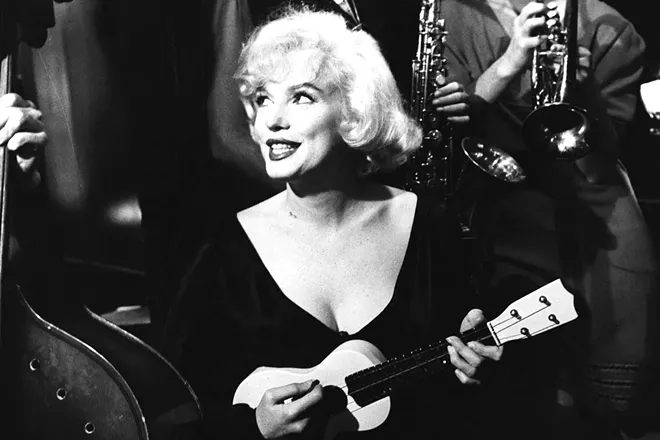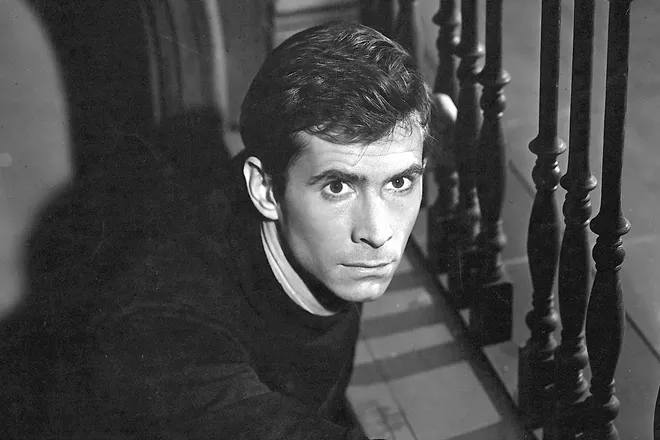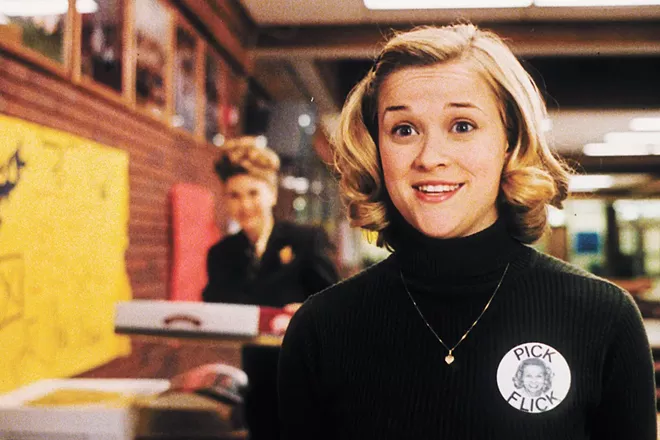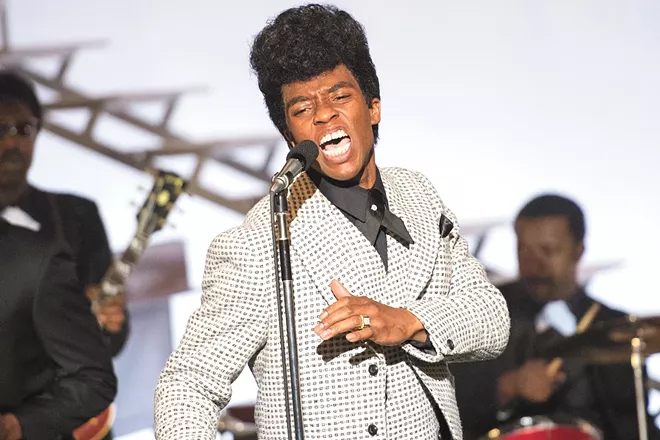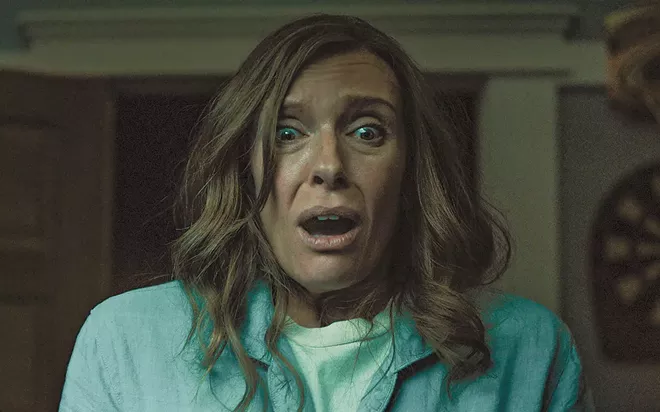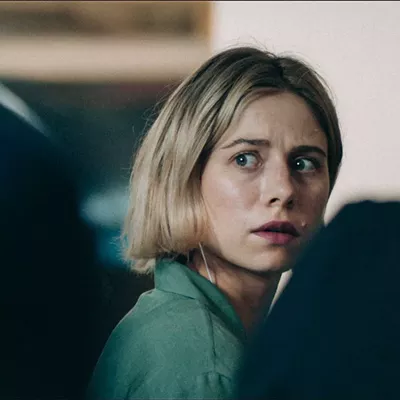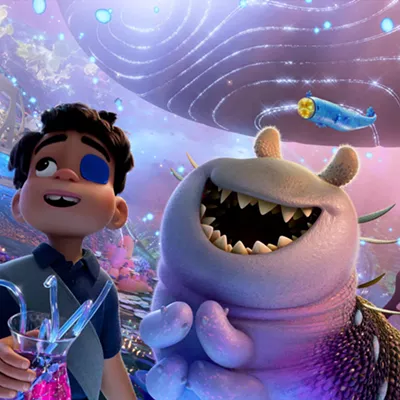The 2021 Oscar nominations are announced March 15, and as is the case every year, there are a few names that are certain to make the list — Chadwick Boseman, Carey Mulligan, Frances McDormand, Daniel Kaluuya. But it also means that some of the best acting work of the year is going to be completely ignored by the Academy of Motion Picture Arts and Sciences, either because it didn't get enough publicity or because buzzier names took precedence.
But those folks will be in good company, because some of the greatest and most influential actors in film history have gone ignored come Oscar time. And there have been a lot of those performances, so I narrowed it down to a dozen of my personal favorites.
ROBERT MITCHUM
The Night of the Hunter (1955)
Now considered one of the finest American films, Charles Laughton's sole directorial outing was ignored at the time of its release — by critics, audiences and awards voting bodies. As murderous Southern preacher Harry Powell, Robert Mitchum attacks the material with relish, and his chilling charisma inspired countless dastardly villains in years to come. He'd later be snubbed playing another killer creep, sociopathic ex-con Max Cady in 1962's Cape Fear.
MARILYN MONROE
Some Like It Hot (1959)
She's arguably the most iconic performer to ever be projected onto a movie screen, and yet Marilyn Monroe was never nominated for an Academy Award, no doubt because Hollywood gatekeepers saw her as little more than a sex symbol. She was famously difficult on the set of her greatest film, Some Like It Hot, which may be why her effortless performance isn't often praised like those of Tony Curtis and Jack Lemmon. But she deserves as much credit for the movie's clockwork brilliance as they do.
ANTHONY PERKINS
Psycho (1960)
When he was cast as twitchy motel proprietor Norman Bates, Anthony Perkins was best known for his Oscar-nominated turn as the meek son of a Quaker farmer in 1956's Friendly Persuasion, and his reputation as a nice guy was key to hiding Norman's true nature from audiences. Though both director Alfred Hitchcock and his doomed star Janet Leigh were recognized by the Academy, Perkins was ignored. Joke's on them, though, because his nuanced take on the prototypical slasher remains a watershed of the genre.
GEORGE C. SCOTT
Dr. Strangelove (1964)
Fewer actors had more antipathy for the Oscars than George C. Scott: When he won for 1970's Patton, he refused the award. He probably wouldn't have wanted to be included in this list (apologies, Mr. Scott), but it's insane to me that his ingenious performance in Stanley Kubrick's Cold War farce Dr. Strangelove didn't get any Oscar love. Kubrick was nominated, as was chameleonic star Peter Sellers, but Scott's toothy, bloviating turn as Gen. Buck Turgidson is maybe the best performance in a movie that is overflowing with riches.
MALCOLM MCDOWELL
A Clockwork Orange (1971)
I could make a list strictly composed of Oscar-neglected performances in Stanley Kubrick movies (the only actor to win for a Kubrick film was Peter Ustinov in Spartacus). While the Academy loved his controversial dystopian satire A Clockwork Orange — it got four nominations, including best picture and director — they bafflingly ignored its central performance: Malcolm McDowell as leering teenage sociopath Alex DeLarge. You'd think the Oscars might have corrected that slight later on, but McDowell has yet to be nominated.
GARY OLDMAN
Sid & Nancy (1986)
Decades before he'd win an Oscar for a prosthetics-dependent portrayal of Winston Churchill, Gary Oldman similarly disappeared into a much less demure historical figure. Perhaps his best on-screen performance is one of his first, a furious, piss-and-vinegar take on the Sex Pistols' tragic Sid Vicious in Alex Cox's punk rock biopic. It was a revelatory piece of acting, and maybe it was his lack of name recognition that resulted in the Academy overlooking him. Regardless, it was the first big step in a long, illustrious career.
ALEC BALDWIN
Glengarry Glen Ross (1992)
One of the great single scene stealers in film history, Alec Baldwin's anti-motivational speech near the top of Glengarry Glen Ross only runs seven minutes but is overloaded with quotable lines. "Always be selling." "Coffee's for closers only." "Third prize is you're fired." The scene wasn't in Mamet's original play, written specifically for the film and with Baldwin in mind, and the relatively young actor stands out among a cast of legends. Despite buzz at the time, Baldwin was snubbed at the Oscars, and Glengarry's only nomination was for Al Pacino.
PAM GRIER
Jackie Brown (1997)
Quentin Tarantino is as synonymous with writing incendiary dialogue as casting old pros in comeback roles, and his Jackie Brown features two: blaxploitation icon Pam Grier as a flight attendant caught up in a smuggling operation, and Robert Forster as the bail bondsman who falls for her. While Forster's work rightfully received a nomination, Grier's didn't. It makes no sense, especially since the world-weary sweetness of Forster's performance is effective because he's working against Grier, who delivers one of the most assured, quietly confident pieces of acting in Tarantino's entire oeuvre.
REESE WITHERSPOON
Election (1999)
It's somewhat ironic that a try-hard like Tracy Flick would get passed over by the Academy. In Alexander Payne's high school-set political satire, Reese Witherspoon plays the most tenacious candidate vying for class president, and she's such a relentless striver that Matthew Broderick's resentful teacher does everything possible to kneecap her campaign. Witherspoon's is one of those rare performances that's both broadly comic and disarmingly human, and though she'd later become an Oscar favorite, Tracy Flick remains her best character.
NAOMI WATTS
Mulholland Drive (2001)
David Lynch is one of the few out-there auteurs that the typically straight-laced Academy loves to recognize, though his best director nod for 2001's mindbender Mulholland Drive was something of a surprise. Even more shocking: The total shutout of that film's star, Naomi Watts, playing a sunny aspiring actress whose innocence and identity are swallowed up by Hollywood depravity. It's a harrowing, out-on-a-limb performance that is perhaps the quintessential summation of all things Lynch, a seemingly innocent facade masking a void of darkness.
CHADWICK BOSEMAN
Get On Up (2014)
Chadwick Boseman will surely win a posthumous Oscar this year for the August Wilson adaptation Ma Rainey's Black Bottom, and it'll be deserved. But he should have been up for the same award a few years ago for the James Brown biopic Get On Up. Not only does the Academy love rewarding this kind of work — Jamie Foxx, Rami Malek, Renee Zellweger and the aforementioned Reese Witherspoon all won playing famous musicians — but Boseman is eerily convincing as the Godfather of Soul.
TONI COLLETTE
Hereditary (2018)
Horror isn't often rewarded come Oscar time, but one of the Academy's biggest oversights in recent years was ignoring Toni Collette's bravura work as a traumatized, possibly possessed mother in Ari Aster's Hereditary. It's one of those performances that could easily turn into camp or unintentional comedy, but Collette's mastery of tone and technique keeps it in line. She has only been nominated once before (funnily enough, for a horror film — 1999's The Sixth Sense), and her snub for Hereditary was so blatant, it's scary.♦


